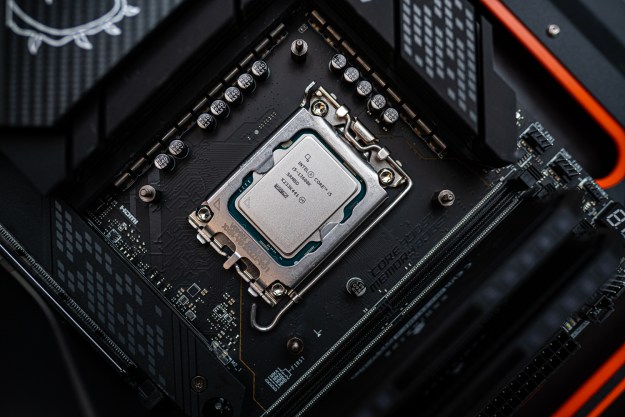A Chinese national was recently caught entering China with 160 Intel processors strapped to his body, an act that customs officials amount to smuggling. The China Customs office stated that it had found Intel’s 11th Gen and the latest 12th Gen Alder Lake models strapped to the man’s abdomen, waist, and legs.
Since none of the items were declared, the smuggling could be part of a tax-evasion scheme to avoid import tariffs on computer components.

Given the already short supply of semiconductors in the past few years due to scalpers, high demand, cryptocurrency miners, the coronavirus, and production issues, chip mules are yet another culprit affecting the world’s shortage of CPUs and GPUs. Chinese officials in recent days also seized a large number of unlawful imports of AMD Radeon graphics cards.
What tipped off customs officials in the Intel smuggling scheme is the abnormal nature of the man’s walking posture.
“At about 1 a.m. that day, a man named Zeng entered the country through the customs ‘no declaration channel’ at the travel inspection site of Gongbei Port,” the China Customs office said in a statement posted on VideoCardz. “Customs officers found that his walking posture was abnormal and stopped him for inspection. After further inspection, customs officers seized a total of 160 CPUs and a total of 16 folded mobile phones tied with tape on the inner side of his calf, waist and abdomen.”
Local media have dubbed the caught man “Walking CPU” or “CPU-Man” for his role in the scheme.
According to China’s laws, individuals are permitted to bring in items that are “limited to their own use and a reasonable quantity,” and any evasion of customs laws constitutes an act of smuggling.

In a separate earlier AMD case, officials noted that as many as 5,840 graphics cards valued at $3 million were seized. Officials claimed that the AMD Radeon cards had incorrect labels in an effort to conceal them and avoid import taxes.
While these two most recent cases affect computer processors and graphics cards, the global semiconductor shortage has more broad affects. Chip shortages have resulted in shortages of cars, leading to higher prices and the omission of certain features, as well as low supplies of gaming consoles and other personal electronic devices. The high demand for consumer electronics coupled with the short supply of chips have rewarded scalpers and resellers, and companies like Nvidia and AMD have tried to implement various ways to curb scalping bots and make their GPUs less appealing to crypto miners in an attempt to service their core PC and gaming demographics first.
In 2021, another Chinese national was caught smuggling 304 Intel 10th-gen Core i7 and Core i9 processors. The value of the CPUs was estimated at $123,550, according to VideoCardz.
Editors' Recommendations
- Do CPUs require drivers?
- Intel’s Raptor Lake refresh prices have leaked, and hikes are on the way
- Get ready to pay more for Intel’s next-gen CPUs
- Intel’s next budget CPUs may finally be worth buying for gamers
- CES 2023: Intel’s new 13th-gen CPUs are faster, cheaper, and more efficient



